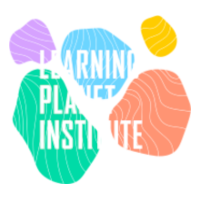
Learning Planet Institute websites
Learning Planet Institute apps
The FIRE doctoral school offers an extensive training program that combines research with a curriculum of advanced courses and workshops on interdisciplinary research, science-related topics and transversal skills for scientific and non-scientific professions. Students are required to validate at least 300 hours of academic training. At least half of this training should be earned through FIRE courses, workshops, and other activities organized by the Learning Planet Institute. The remaining hours may be validated through courses taken at other institutions in France and abroad, massive open online courses (MOOC), international meetings and summer schools, teaching and outreach activities, etc.
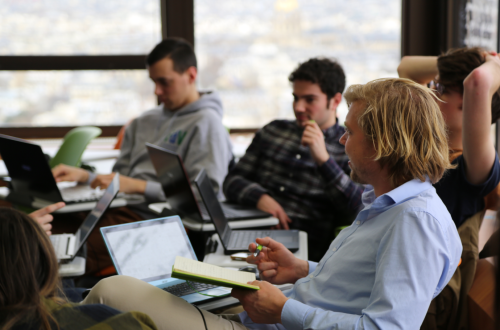
FIRE courses are also open to students from other doctoral programs who should directly contact Camille Gaulon (camille.gaulon@learningplanetinstitute.org).
Priority is given to FIRE students when spots are limited.
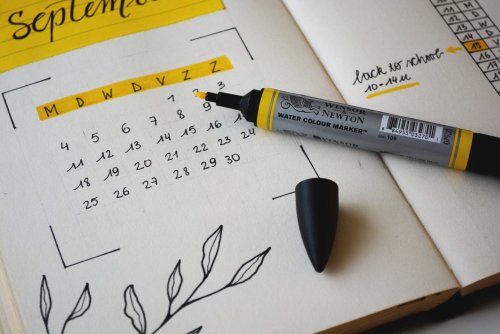
First year is made of activities which create and strengthen our interdisciplinary community. Our PhD students also attend (at least) one of the three courses we offer in oral communication, depending on their needs and interests.
The Community, Interdisciplinary Reflections and Projects (CIRP) workshop intends to assemble free spirited students and researchers from broad scientific backgrounds to conceive creative research projects. This workshop provides the primary basis for collegiality and communication through dialogue and brainstorming on open questions in interdisciplinary research project. It is a joint activity between 1st year FIRE students and AIRE M2 students.
Aims of the workshop:
Approximative dates: Mid/End of September
The Interdisciplinary Thursday seminars provide an overview on a wide scope of interdisciplinary research in life sciences and education. They promote discussions and scientific exchange among the fellows and senior scientists and develop an interdisciplinary scientific community.
Each session consists of 3 short talks (~15 minutes) by first year FIRE students introducing their research question and experimental/theoretical strategy followed by a discussion. Drinks and snacks will be provided.
The IT seminars take place in the Learning Center Extension (ground floor) at CRI building (8 rue Charles V 75004 Paris), from 18:00-19:30.
Approximative dates: Thursday evening every two weeks from October to April
This course is intended to train students to improve the critical reading of interdisciplinary research papers and to introduce them to the different aspects of the peer review process.
Students will be exercised on their ability to capture rapidly the content of a paper, including conceptual framework and technical aspects. Several aspects of the methodology to perform this task efficiently as well as retaining the content of papers will be discussed with the instructors. Emphasis will be put on analyzing methodological aspects and the writing of method sections, with illustrations and comparisons between different articles. Examples of seminal work involving methodological breakthrough will be presented and discussed. FInally, scientific misconduct leading to ethical issues will be exemplified and analyzed.
The course will also exercise and lead students through all critical steps of the peer review process, the tasks of Editors and board, the writing of appropriate reviews and will include some aspects of paper submission (ex: the writing of a cover letter). Examples will be given of crosstalk between reviewers and authors with the support of available transparent reviewing process provided by particular journals.
Teachers: Benoît Sorre and Saskia van der Vies
Approximative dates: March
You will have to give a scientific presentation? Don't panic. There are many things you can do to prepare a talk you will be proud of (or, at the very least, one you won’t be ashamed of), but most of them take time to master. So how about you start working on your presentation before you actually need to give one? This course will help you find the best way to communicate your science... to anyone and everyone.
Teacher: Eugenia Covernton
Approximative dates: October / November
You would like to do some science communication but you don’t know where to start? You always wanted to share your research to different audiences but you’re not sure how to proceed? This workshop is made for you! In 2 days we will be covering what kind of science communication exists and the basis of science communication, for any type of audience. You’ll learn about Twitter and most importantly, you’ll train to present your research to different types of audiences: general public but also journalists, funders, policy makers, etc.
Teacher: Elodie Chabrol
Approximative dates: October / November

During the 2nd year of PhD, interactions between FIRE students and AIRE M2 students are happening through the joint organization of Thematic Workshops conferences. PhD students also improve their scientifical writing skills.
Has your writing been infected by the Scientific Writing Style virus? Has it lost clarity, conciseness, interest, fluidity? Has it lost readers, become so abstract or unclear that even experts struggle with it? Come and learn how to see the signs of infection. Diagnose what makes your writing ineffective. And become a better writer, one that readers find imminently readable, one that readers enjoy and learn from.
Teacher: Justin Lebrun
Approximative dates: One session in November, another one in April
The Thematic workshops give FIRE and AIRE M2 students an opportunity to conceive and organize a workshop to showcase their research and interests in an interdisciplinary and open setting. The workshops aim to create a setting for discussion and exchange amongst PhD students, Masters students, and the scientific community at large.
FIRE PhD students and AIRE M2 students work together to create the thematic workshops week at the CRI. The students decide on themes and then have the opportunity to organize each component of the thematic workshop, including format, guest speakers, scheduling, advertising, etc. A budget is available for invitations of external scientists to participate in the workshop and interact with the students.
Approximative dates: February
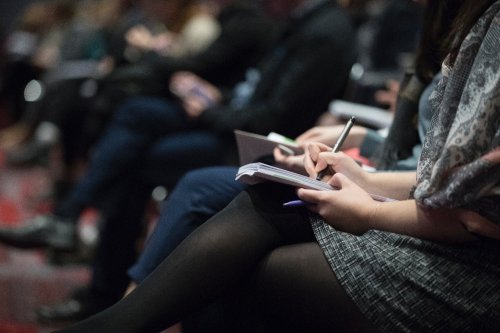
We strongly encourage our PhD students to follow at least one module related to the post-thesis journey during their last year of PhD.
The goal of this training is to support young researchers in the active development of their career plan and prepare them for the fundamentals of job search, in particular in academia in France. Special attention will be paid to the postdoctorate. The workshop will present the keys to selecting and successfully carrying out a postdoc and help to answer common questions of PhDs interested in applying for postdocs.
Teacher: Melike Riollet, ABG Intelli'agence
Approximative dates: May
The FIRE doctoral school is supporting the association PhDooc for its MOOC "Doctorat et Poursuite de Carrière - PhD and Career Development". Our students who registered and fulfil the requirements will receive an official certificate of completion.
More information Enroll here.

This workshops offers students a space to discuss the challenging and stressful aspects of the PhD and to provide support to their peers who are also facing similar issues. Students will gain more control over their negative emotions and improve their resilience in the PhD program.
Doing a PhD is a stimulating, but also a challenging and stressful experience, as pointed out in the growing body of literature on doctoral education. Many stress factors affect PhD students: elaboration of a research project, integration in a research lab and into various networks, relationships with the supervisor(s) and with peers, growing competition, quest for funding, the doctoral writing, solitude, lack of self-confidence, precariousness, uncertain future, etc.
It is perfectly normal to face obstacles during the “doctoral journey” and there seems to be an increasing awareness among academics of the need for a specific support during this long adventure. Various institutional initiatives flourish around the world and intervention programmes at schools and universities have shown their efficiency. The SPARK Resilience program, which aims to help people gain more control over their negative emotions and improve their resilience skills, has been adapted to address the specific needs of doctoral students in this series of workshops.
During the small group discussion sessions students will collaborate to improve engagement at work, self-motivation, personal growth and well-being; as well as develop techniques to reduce anxiety, unpleasant/negative emotions and depression.
Teacher: Pascale Haag
Approximative dates: November / December
“Chance favours the prepared mind.” Louis Pasteur, Lecture, University of Lille (7 December 1854)
What is the philosophy of science? How does it relate to research, in theory and practice? What is it good for? Why should I care? Will my research profit from knowing about it, or is it (as Richard Feynman quipped) as useful to scientists as ornithology is to birds?
This course will make you a better researcher by making you a better philosopher!
Join us for five half-days of collective exploration into the nature of reality, perspectival knowledge, and the process of open inquiry.
Teacher: Johannes Jaeger
Approximative dates: January
What are the specificities of the scientific approach to investigate the world? And of the artistic ones? How both differ or, on the contrary, look alike? More important, how both approaches could combine? That is, how the practice of the arts can enrich scientific research?
Teacher: Aurélien Peilloux
To be confirmed
The goal of this course is to equip the students with relevant and actionable tool to increase their efficiency in the context of research. We will cover a wide range of topics, including priority setting, organisation, how to conduct an efficient state of the art, how to develop and stick to habits, how to overcome the mid-PhD depression or how to enhance its research capabilities with networking and collaborations.
Teacher: Aurélien Baelde
Approximative dates: December / January
Each morning you’ll receive an e-mail with an assortment of written content and audio recordings. Each lesson takes ten minutes to complete and includes a story with dialogues, questions, ‘mini-lessons’ and revisions.
After clicking the ‘send’ button, you’ll receive your e-mail corrections with your score of the day, explanations on why you got each question right or wrong, transcripts of the audio recordings, the vocabulary you wanted to learn more about, etc.
The next lessons will be customized according to your previous answers, your expectations and your needs.
Each morning you’ll receive an e-mail with an assortment of written content and audio recordings. Each lesson takes ten minutes to complete and includes a story with dialogues, questions, ‘mini-lessons’ and revisions.
After clicking the ‘send’ button, you’ll receive your e-mail corrections with your score of the day, explanations on why you got each question right or wrong, transcripts of the audio recordings, the vocabulary you wanted to learn more about, etc.
The next lessons will be customized according to your previous answers, your expectations and your needs.

As biology is becoming more and more quantitative, today’s scientists end up with a huge amount of numbers to describe their experiments / their empirical observations. Traditional approaches, based on p-values and hypothesis testing, are very often pushed beyond their capabilities in these cases. In this 3 days workshop, we will cover the basics of machine learning (ML), namely how to extract information from datasets that could not be analyzed with the naked eye or manually. The aim is to share both the underlying mathematics (in a gentle way !) as well as provide a practical use of the methods, through dedicated softwares.
Students are more than welcome to come with their own datasets and/or share the ML methods they could have been already using. In that sense, the proposed schedule is only an outline and many of its parts could be covered by one or more willing participant. In the same spirit, if a specific method is of interest for a good number of people, it can be added in the program.
Teacher: Yann Le Cunff, yann.lecunff@univ-rennes1.fr
Qualitative research is being paid more attention to and is becoming more valuable because of its relevance. In fact a large part of research questions can only be assessed using qualitative research methods. In light of this evolution it is important to develop qualitative research projects in an appropriate scientific way in order to increase the reliability and transferability of the results. Hence, in this module, you will explore qualitative research by recognizing its characteristics, strengths and weaknesses, and importance across different fields.
Teachers: Hilde Bastiaens, Sibyl Anthierens
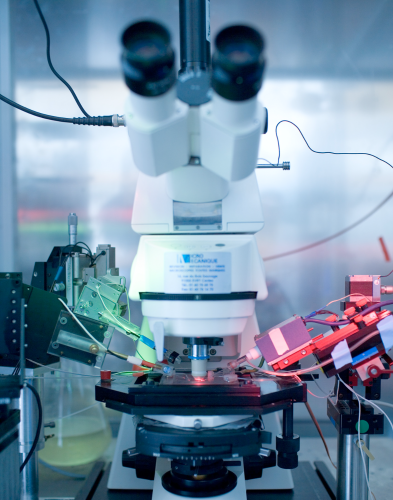
Language: English unless all the participants are French speakers.
Location: Courses are held at the Centre de Recherches Interdisciplinaires (CRI), 10 rue Charles V, 75004 Paris. An identity document is required to enter the building.
If you have any questions, please send an email to the scientific coordinator, Camille Gaulon, at camille.gaulon@learningplanetinstitute.org.